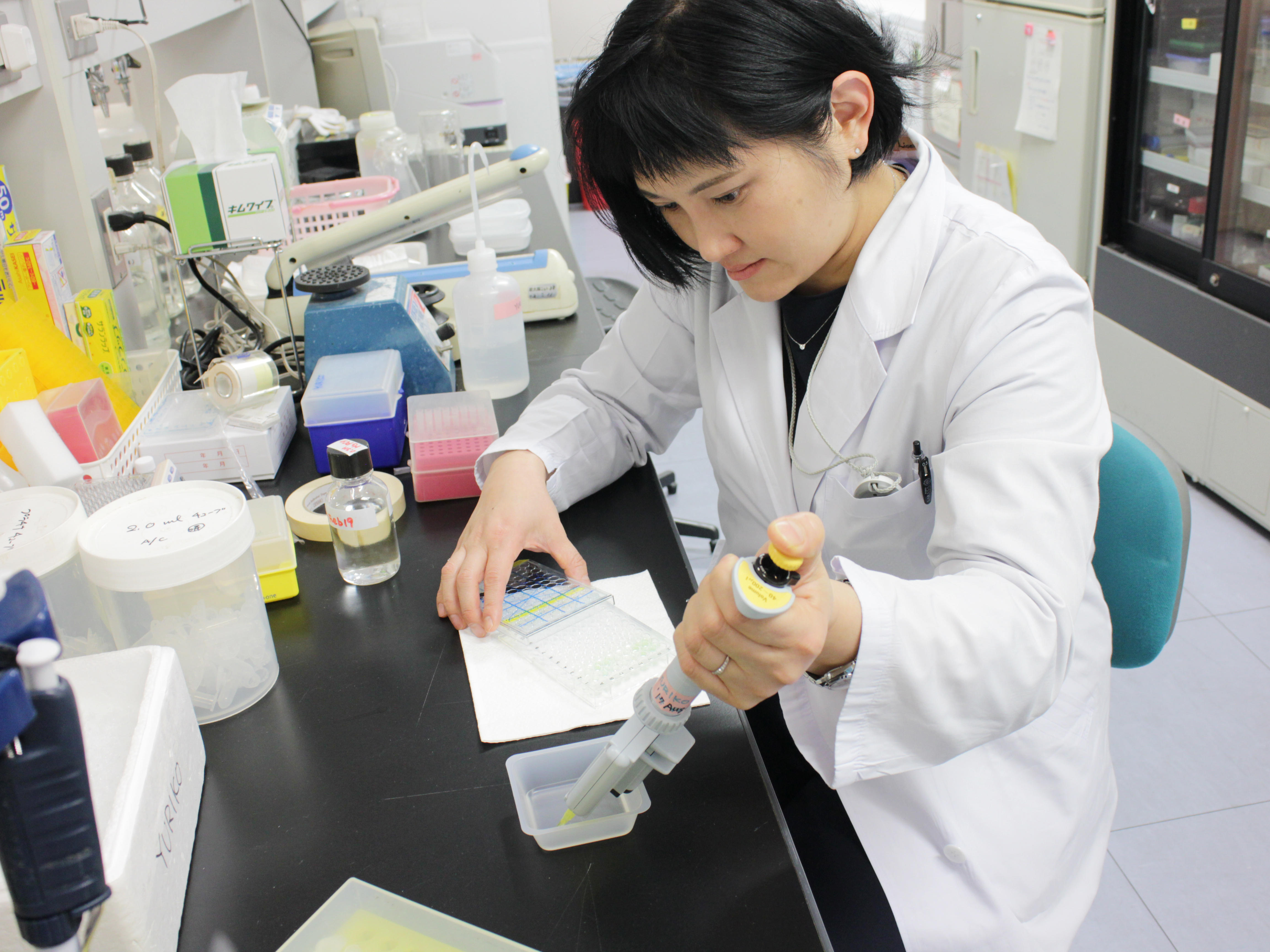
Yuriko Iwakura
Assistant Professor, Dept of Brain Tumor Biology
Interview
〔Brief Bio〕
Dr Iwakura was awarded JSPS Research Fellowship for Young Scientists, then served as a Fellow at Skirball
Institute of Biomolecular Medicine, NYU School of Medicine, before the current post at BRI.

Tell us about the research that you are currently working on at BRI.
In the central nervous system, "neurotransmitters" are vital for normal transmission, and so are "neurotrophic factors" for regulating the survival and growth of neurons. Recent studies show that they don't only independently but mutually regulate one another by means of "cross talk". My research focus is to understand the mechanism of the cross talk between neurotransmitters and neurotrophic factors, for the regulation of neuronal development and for the pathology of neuropsychiatric disorders such as schizophrenia.
What attracted you to a scientist?
I made first encounter with the neuroscience in taking the course of Professor Nawa. Only a 1,500g of human brain or even one neuron has orderly, broad and strange functions. That makes me feel thrilled with neuroscience as the frontier.
What are the advantages of working as a scientist? And tell us the rewarding aspects of a career in science.
Given the working condition of a scientific post based on independent and flexible working hours, what you do's and don'ts are pretty much up to you and that affects your research development. Having freedom to plan and execute your work means that you can be flexible to your workloads and hours to manage and care your family. Basic science that tries to shed light on cranial nerves and functions forms the foundation for elucidating the pathogenesis of and establishing therapeutic methods of brain disease and disorder. I intend to keep this standpoint in mind at my research. As a scientist, I find it rewarding that innovations and developments from research would bring benefits to society. Besides, the work isn't just restricted to research and teaching; attending scientific conferences in Japan and elsewhere, going overseas study, providing an on-site training for middle and high school students at open lab event are also part of what I do as a scientist. Being a scientist does not mean that you are working in a closed lab all the time. There are opportunities to connect with people more than one can imagine. Broad-ranged tasks that I am involved in attract me a lot.
How do you manage to balance your work and your family?
I would say I never have enough time to do everything. I am very lucky in supported by family and colleagues, who all have been generous. I have funding support for Work-Life Balance Assistant Employment System sponsored by Niigata University's Office for Equality and Diversity, which provides me reassurance. It may not be sufficient, but I try to make sure that: tasks both at work and at home shall be well prepared in advance; getting the work done at my full capacity; and having a backup plan ready for what I won't be able to do.





